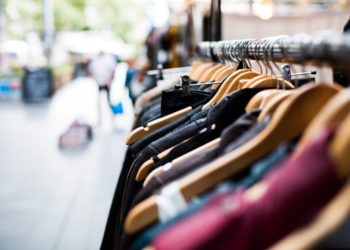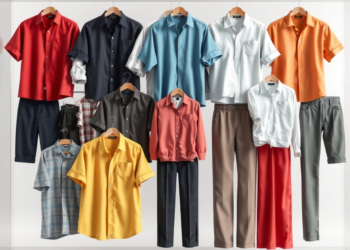Fashion has long been an expression of societal values and trends, reflecting society’s attitudes and trends. Now, as concerns about climate change and environmental degradation increase, the fashion industry is seeing dramatic changes wrought by sustainable fashion; not simply an empty phrase used as marketing hype but actually becoming an emerging movement. Within the UK alone this movement is gathering pace, driven by both consumer demand and innovative brands dedicated to decreasing environmental footprint.
Understanding Sustainable Fashion
Sustainable fashion encompasses an expansive set of practices meant to lessen clothing production and consumption’s negative environmental impact, including using eco-friendly materials, fair labor practices, upcycling waste streams through recycling/upcycling initiatives and designing garments intended for prolonged longevity over quick disposal.
Sustainability initiatives in the British fashion industry have become more evident over time, from high street retailers to luxury labels. Consumers have become more conscious of how their fashion purchases impact both the environment and society – prompting companies to adopt more environmentally responsible practices.
Consumer Shift
A key driver behind the increase in sustainable fashion is consumer mind shift. Millennials and Gen Z, especially, are prioritizing sustainability when making purchasing decisions; according to GlobalData data from UK shoppers alone, 43% consider the sustainability credentials of products before purchasing. This shift stems from greater awareness around pollution issues such as labor exploitation or carbon footprint of fashion industry products.
Social media and digital platforms play a pivotal role in informing and educating consumers about sustainable fashion. Influencers and activists use them to highlight its significance, by featuring brands with sustainable production processes or eco-friendly materials and ethical business practices that prioritize transparency and accountability from fashion brands. With pioneering sustainable brands emerging on a regular basis in the UK market, consumers demand transparency from them all the more often.
Pioneering Sustainable Brands in the UK
UK-based brands are at the vanguard of sustainable fashion movements, setting benchmarks that others must aspire to follow.
Stella McCartney has long been recognized for their commitment to sustainable fashion. Their brand utilizes organic cotton, recycled materials and advanced fabric technologies in order to reduce environmental impacts while remaining ethical labor practices and animal welfare-compliant.
People Tree, an industry pioneer of fair trade fashion, collaborates closely with artisans and farmers in developing nations to craft stylish yet eco-friendly clothing collections made of organic cotton or other sustainable fabrics ensuring fair wages and safe working conditions for all involved parties. The brand provides employment to artisans as well as farmers of its collections made with eco-friendly fabrics such as hemp.
Vivienne Westwood has also made notable strides toward sustainable fashion. Well known for her signature punk aesthetic and advocacy efforts on climate change and sustainability issues, Westwood uses recycled and organic materials and promotes purchasing less but higher-quality items in her brand line.
Innovations and Technologies
Technology lies at the core of sustainable fashion movement, and UK-based companies have taken notice. Worn Again Technologies in particular utilizes cutting edge textile recycling processes that separate, decontaminate and extract polyester and cellulose from non-reusable textiles and PET bottles into new fabrics in an ongoing loop system that drastically reduces waste.
An innovative company called Ananas Anam has come up with Pinatex – a leather alternative composed of pineapple leaf fibers sourced sustainably. Not only is Pinatex cruelty-free and eco-friendly; its production also supports farmers by creating additional income opportunities from agricultural waste.
Challenges and Opportunities
While sustainable fashion has gained significant momentum in recent years, its growth comes with certain obstacles. A major issue lies with its higher cost associated with materials produced using eco-friendly techniques; many consumers may view eco-friendly fashion as out of their financial reach; as technology evolves more sustainable practices are expected to decrease and become more common, making eco-friendly fashion more easily attainable for more consumers.
Another challenge lies in increased transparency and regulation. Unfortunately, many brands engage in “greenwashing”, marketing themselves as sustainable without providing evidence supporting these claims. Consumers should remain wary when purchasing from these businesses, looking out for credible certifications as well as transparent reporting from them.
Even with its challenges, sustainable fashion provides enormous growth potential. By 2023, global sustainable fashion market revenues are predicted to reach PS7.3 billion with UK playing an essential part in this expansion. Brands who prioritize sustainability can not only build loyal customer bases but also contribute towards making our planet greener!
Government Policies and Regulations
Policies and regulations play a central role in supporting sustainable fashion. In the UK, for instance, the Environmental Audit Committee has proposed measures such as tax breaks for sustainable businesses that use sustainable processes, extended producer responsibility schemes for textile waste production, as well as stricter textile waste regulation to support such efforts.
In 2020, the UK government unveiled the “Textiles 2030” voluntary agreement in order to reduce clothing and textile’s environmental footprint in Britain. This initiative focused on increasing resource efficiency while decreasing carbon emissions while simultaneously encouraging circular economy practices within fashion industry.
Sustainable Fashion Events and Collaborations
Sustainable fashion events and collaborations in the UK are helping fuel this movement forward. Events like Sustainable Fashion Week in London bring eco-conscious designers and brands together, giving industry leaders an opportunity to discuss sustainable practices with one another and form industry-wide alliances; whilst collaborations between fashion brands and environmental organizations raise awareness and drive change – such as when Adidas collaborated with Parley for the Oceans on footwear made of recycled ocean plastic waste to demonstrate just one example of innovative collaboration in tackling environmental concerns.
Future of Sustainable Fashion in the UK
Sustainable fashion looks set for strong growth and innovation in the UK. Consumers increasingly require transparency, ethical practices and environmentally-friendly products from their clothing suppliers; brands which embrace sustainability not only stand to benefit economically but can contribute toward creating a healthier planet as well.
As this movement gains steam, consumers must actively support sustainable brands and practices by making educated choices and prioritizing quality over quantity – this way we can collectively drive fashion towards more responsible practices in its future.
At its core, sustainable fashion’s rise in the UK can be seen as evidence of consumer demand and innovation. As more fashion brands adopt eco-friendly practices and consumers become aware of what choices are sustainable or ethical alternatives available for purchase, the fashion industry could move toward becoming a more eco-friendly industry over time. By supporting sustainable brands and staying informed we all play our part in contributing towards this important movement.












































































